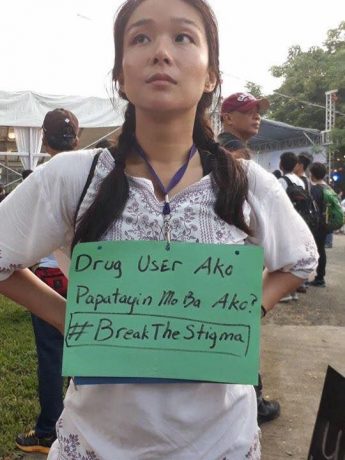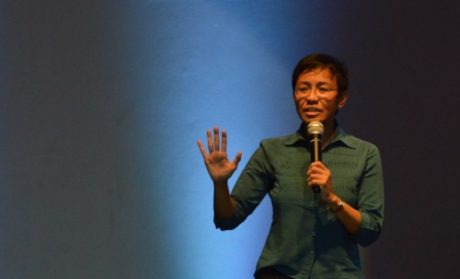BY YEN MAKABENTA ON NOVEMBER 30, 2017

First word
THIS direct quote from Supreme Court Associate Justice Teresita Leonardo-De Castro reflects the essence and significance of her testimony yesterday at the House hearing on the impeachment complaint against Chief Justice Maria Lourdes Sereno.
“Aghast,” says the Oxford dictionary, means “filled with horror or shock,” and has for synonyms, appalled, dismayed, thunderstruck, stunned.
What did CJ Sereno do that was so ghastly to the only other female justice of the high court?
The ghastliness concerned the questionable or irresponsible actions of the chief justice on two matters before the high court, and which moved De Castro to take exception to the actions of the chief magistrate.
Two ghastly actions by the CJ
First, CJ Sereno misrepresented an en banc resolution by the high court concerning the creation of a Regional Court Administrative Office (RCAO) in Region 7, and proceeded on her own to replace it with a Judiciary Decentralized Office (JDO) in the same region. In the process, she skirted the legislative authority of Congress and without consulting with the other members of the court.
She deceptively presented the JDO as the same as the RCAO, which the court had authorized by an en banc resolution.
In his impeachment complaint, lawyer Lorenzo Gadon charged that Sereno had falsified the SC resolution in order to bypass the Office of the Court Administrator (OCA) in the administration of the regional office, so she could appoint officials to the unauthorized office.
Neither the JDO nor the RCAO exist today, as a result of Sereno’s erratic actions.
Second, CJ Sereno bypassed a recommendation by the member-in- charge, and unilaterally issued a temporary restraining order (TRO) concerning the party-list elections at the Commission on Elections, on which the Senior Citizens party had petitioned the high court in order to stop the proclamation of winners.
Justice de Castro was assigned to serve as the member-in-charge of the party-list case. She studied the case and duly came up with a recommendation that the court issue a TRO on the Comelec.
Without consulting with her, CJ Sereno decided to issue a TRO on her own and ignored De Castro’s recommendation. Sereno’s TRO turned out to be a blanket order to the elections body, and covered cases that were not involved in the petitions of the Seniors party.
In the irregular issuance of a TRO. The chief justice violated the SC’s internal rules and its principle of collegiality in its decisions.
Creating an office without authority
De Castro was invited to shed light on Sereno’s alleged unilateral issuance of Administrative Order (AO) 175-2012, which designates the head of the Judiciary Decentralized Office (JDO) in the seventh judicial region.
De Castro said that when Sereno issued the AO, it appears that she created a permanent office. “The chief justice cannot create an office because it is a legislative power,” she said.
House Majority Leader Rodolfo Fariñas supported her assertion, saying that “not even the Supreme Court can create an office.”
De Castro pointed out that the RCAO is not a permanent office. “Even if it was created by the court, it was a pilot project, it is an ad-hoc body. It has no permanency,” she said.
“So, it may not come with the exclusive legislative power vested upon us,” she added.
De Castro said the associate justices were not consulted by Sereno in the opening of the RCAO 7.
“We were taken aback because we were invited only to a launching of the RCAO 7 and we were not at all consulted to participate in this decision,” she said.
This prompted De Castro to look deeply into the matter; she found that the chief justice had issued AO 175-2012 designating the head for the JDO in the seventh judicial region. “This is not meant to implement the RCAO as approved by the court en banc unanimously,” she said.
De Castro likewise confirmed the allegation that Sereno issued the resolution in Administrative Memorandum No. 12-11-9-SC, on the opening of RCAO 7, without the en banc’s consensus.
She said the resolution was ratified without reflecting the “vehement objection” raised by the justices during the deliberations of the court en band.
To be truthful is to be just
The lady justice has a way with words, and she takes care to be precise and clear in what she says.
From first to last in her testimony, De Castro avoided casting aspersions on or criticisms of the CJ ‘s actions. She repeatedly declined to say that Sereno is to be faulted for having culpably violated the Constitution.
Nevertheless, the lady justice was telling in her remarks. She could also be memorable. She established the essence of her testimony with one memorable line: “To be truthful is to be just.”
Before the high court permitted Justice De Castro to appear at the House hearing, it was totally unexpected and unprecedented for a justice to submit to interpellation by legislators. It is uncommon in the light of the doctrine of separation of powers, and respect between government branches.
As things transpired, Justice De Castro showed why it was indubitably right for her to be called and for her to testify. She spoke with direct knowledge of the matters and issues being studied by the House committee. And she went there fully armed with documents and clear and vivid recollections of events that transpired in the high court.
It was like the “parting of the red sea” for the impeachment hearing, which was being killed by the repetitive questions of pro-Sereno legislators, who tried to derail and confuse the proceedings.
The clarity of De Castro ‘s testimony made such distractions irrelevant and insufferable. It seemed as though some House members were bidding to become the “Trillanes” of the chamber.
yenmakabenta@yahoo.com
http://www.manilatimes.net/de-castro-aghast-sereno-done/365786/









